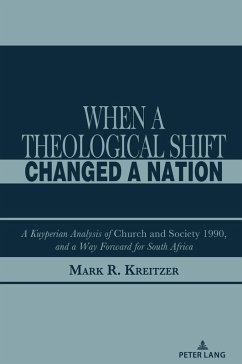
Baptist Confession of Faith
Versandkostenfrei!
Versandfertig in 6-10 Tagen
6,99 €
inkl. MwSt.

PAYBACK Punkte
3 °P sammeln!
The "Baptist Confession of Faith" is a seminal document that articulates the theological tenets and ecclesiastical principles of Baptist congregations during the 17th century. Written with a clear and precise style, the confession serves as both a declaration of faith and a guide for moral and spiritual conduct within the church community. It emphasizes key doctrines such as salvation, the role of Scripture, and the nature of the church, placing each within the broader context of Reformation thought and the distinctive beliefs that differentiate Baptists from other Christian traditions. This d...
The "Baptist Confession of Faith" is a seminal document that articulates the theological tenets and ecclesiastical principles of Baptist congregations during the 17th century. Written with a clear and precise style, the confession serves as both a declaration of faith and a guide for moral and spiritual conduct within the church community. It emphasizes key doctrines such as salvation, the role of Scripture, and the nature of the church, placing each within the broader context of Reformation thought and the distinctive beliefs that differentiate Baptists from other Christian traditions. This document reflects the historical tensions of the era, including issues of religious liberty and governance, setting the stage for future Baptist identity. The authors of the "Baptist Confession of Faith" were influential leaders of the early Baptist movement, emerging from a rich milieu of dissent against established church practices. Scholars like Thomas Helwys and John Smyth played pivotal roles in formulating these ideas, drawing upon both biblical texts and Reformed theological frameworks. Their personal experiences of persecution and the pursuit of a more authentic Christian expression significantly shaped the content and purpose of this confession, underscoring the intersection of faith and social justice, as well as the importance of community governance in churches. This significant work is highly recommended for anyone seeking to understand the foundations of Baptist doctrine and its historical evolution. Whether you are a theologian, a historian, or someone simply curious about Christianity's diverse expressions, the "Baptist Confession of Faith" provides invaluable insights into the core beliefs that have shaped Baptist identity, making it essential reading for both scholarly study and personal reflection.












